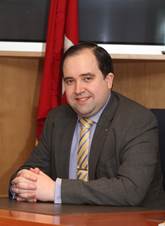
The Minister for Health and Social Care on the Isle of Man has been savaged for failing to provide a specialist service for M.E. sufferers – during a week of intense M.E. advocacy on the island.
Members of the Manx Parliament, Tynwald, queued up last Wednesday to denounce their administration’s failure to get a grip on health services for an estimated 350 islanders, Some astonishing admissions were made by the Minister.
David Ashford, appointed Minister in January 2018, revealed that an experiment to appoint a consultant psychologist in October 2019 to run the service at a cost of £90,000 hit the buffers five months later. This was when the part-time locum who was actually appointed resigned in the middle of the Covid crisis. The £90,000 cost had left little behind to pay for supporting therapy services.
“So we have basically and frustratingly lost 14 months of potential progress”, said Mr Ashford. “However, in a bizarre way, that delay has actually turned out to be beneficial as the original focus was to be in a consultant-led service, very much in the old style of doing things.
“The more I and the Department have looked at this again, using that breathing space of those 14 months, we are not convinced this is the most effective way of delivering service or the most financially efficient way of delivering support.”
Now in favour, he said, was a scheme to build a new, combined M.E. and Long Covid multi-disciplinary support service, with physiotherapy and occupational therapy at its core and drawing where necessary on the expertise of a consultant in Liverpool.
But it mustn't be a one-size-fits-all service, he said. There had to be recognition that, while there might be significant overlap of symptoms, the therapies required may well be different.
Mr Ashford said that since 2015 there had been only six hours a week of clinical time to deliver therapy services to M.E. sufferers, either at home or in the physiotherapy gym. “Six hours is nothing. It’s not going to go anywhere.”
He said he had been unable to attend the members’ briefing earlier in the week by ME Support (Isle of Man) due to prior commitments but read out the opening quote from their ‘Not Waving But Drowning’ case study report.
“The single biggest factor determining recovery and remission from M.E. at this point is appropriate rest in the early and severe stages of the illness. The importance of avoiding over-exertion cannot be over-estimated.”
From ‘Not Waving But Drowning' case study report
Every member who spoke in the debate said it was high time islanders got the M.E. service they deserved. A few went further – accusing Mr Ashford of putting too positive a spin on the administration’s failures.
The island's former GP champion for M.E, Dr Helen Grieg, gave expert evidence during the session.
Earlier in the week, Juan Corlett led the Support Group’s well-planned assault on hearts and minds in the Parliament with a short presentation to members in Tynwald. Up to half the island’s parliamentarians are thought to have attended.
Mr Corlett, a chartered accountant with nine years of severe to moderate M.E. under his belt, is still off work.
He described his illness at its worst: “The day is all about endurance. It is just horrible, absolutely awful. I was incapacitated, unable to talk for large periods, unable to talk with a friend for more than five minutes without getting tired. Work was a distant dream. I couldn’t feed myself at times, I couldn’t cook for myself. I couldn’t even shovel food with a fork into my mouth and it was just horrendous. Life was taken away from me completely.”
The centrepiece of the group’s presentation was a 15-minute video featuring Mr Corlett, ME Support (Isle of Man) vice-president Craig Morris, ME Association medical adviser Dr Charles Shepherd and Lesley Pickering, director of the North West Fatigue Clinic in Blackburn, Lancashire, who is Mr Corlett’s M.E. therapist.
Mr Morris said: “Eleven years after my horrendous experience with our medical system, I am still hearing from people experiencing the same problems – delayed diagnosis and harmful treatments, M.E. patients have been suffering for 40 years with no meaningful solutions.”
Phil Gawne, president of the support group and a former minister in Tynwald, spoke movingly about his daughter Kitty, her 13 years of living with the illness and her abandonment by the health services after what he said were years of mistreatment.
Earlier on the day of the debate, ME Support (Isle of Man) had organised a peaceful , placard-waving demonstration outside Tynwald.
Our Comment
It was a shame that Minister Ashford couldn't find the time to have attended the pre-debate presentation by ME Support (Isle of Man). He would have made more of the message needed to be drummed into the multi-disciplinary teams – they need to know what works and what doesn't in the management of people with early-stage post-viral fatigue syndrome.
And that revelation about employing a consultant psychologist for £90,000 to run the ME/CFS service on the island, leaving nothing in the kitty for therapy services? What were you thinking? That appointment must have been designed not to inspire confidence in the ME/CFS community. Next time, please find an appropriate consultant and act on advice from the local group. They know precisely what's needed.
DOWNLOADABLE RESOURCES
Transcript of the Minister’s speech to Tynwald
Video of the Support Group’s presentation.
Text of main points made by each speaker in the video
By Tony Britton, Fundraising and PR Manager, ME Association









